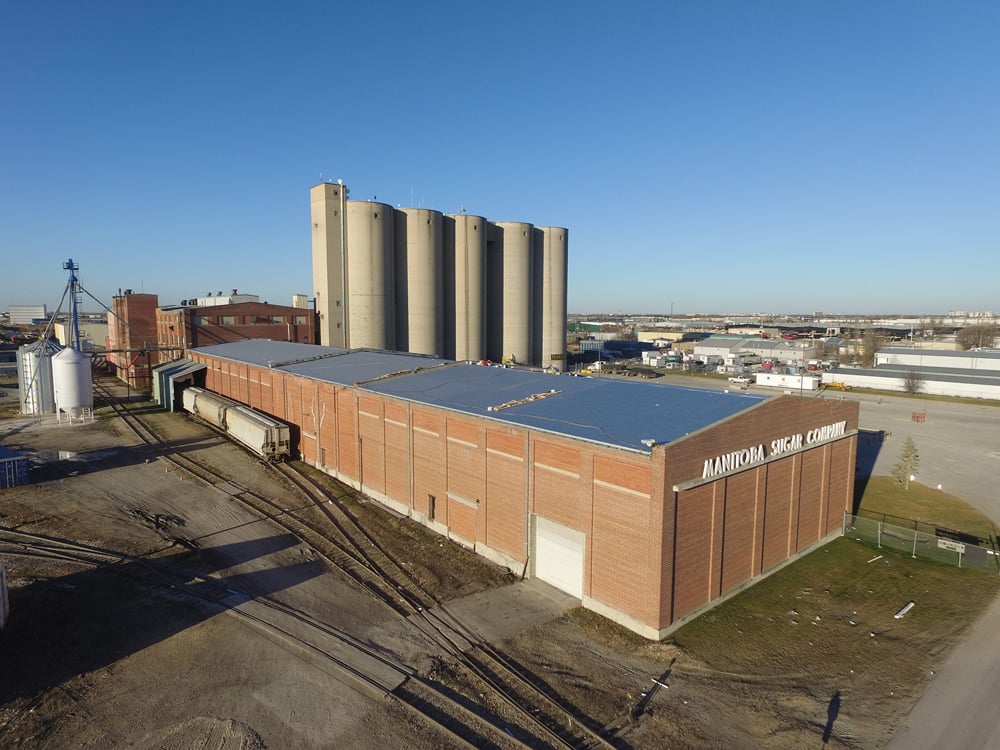Manitoba hasn’t been a sugar-producing province in over 20 years.
There’s been nowhere to sell it. The sole Winnipeg refinery closed in early 1997.
Owned by Rogers Sugar at the time of closing — the same company whose employees are currently on strike at its cane sugar plant in Vancouver — the Manitoba Sugar Company facility was built in 1940 and was the heart of the Keystone province’s sugar beet industry for decades.
Read Also

VIDEO: Manitoba’s cabbage seedpod weevil explosion
Crop pest could pose a big problem for Manitoba canola growers in 2026 if last year’s population jump wasn’t a fluke.
By the 1990s, the plant was feeling the pinch. A 1997 article from the Western Producer in the wake of the closure announcement pointed fingers at a one-two punch of greater domestic competition and trade pressures from the U.S.
The company was fighting for market share with Eastern Canada’s Redpath sugar, which had recently expanded, while a U.S.-introduced 22,000-tonne quota on Canadian sugar had put the proverbial nail in the coffin, said then-Rogers Sugar president David Elliott.
The same article noted the Winnipeg plant was the oldest and smallest of the company’s holdings.
Why it matters: Alberta’s sugar beet growers say a domestic sugar policy would help kickstart the Canadian sugar industry rather than relying on foreign supply.
Today, the Manitoba Sugar Company is a red-bricked relic standing in the shadow of five concrete silos. It’s grounds, which once shipped 50,000 tonnes of refined sugar (half its production) annually to the U.S., is now occupied by other businesses, according to the Manitoba Historical Society.
If Canada’s remaining domestic sugar producers have anything to say about it, that might not be the last word on the province’s sugar fortunes.
The Alberta Sugar Beet Growers organization wants a national domestic sugar policy, which it says could lay the foundation for an eventual resurgence of the sector.
Such a policy would regulate the amount of sugar imported into Canada from cane sugar-producing countries like Brazil and India. Instead, the group says, there could be a focus on home-grown sugar beet production and processing.
“We’re the only G7 country that does not have a domestic sugar policy,” said Jennifer Crowson, the grower group’s executive director.
“A sugar policy would protect the sugar beet market and the ability for us to expand the industry.”
The group says its growers produce only eight per cent of the sugar sold in Canada, and the remainder is imported cane sugar.
The immediate goal of a domestic sugar policy, as laid out by the Alberta group and its national counterpart, the Canadian Sugar Beet Growers Association, would be to double sugar beets’ market foothold to 16 per cent of national sugar consumption.
This would drive new investment in refineries and open grower opportunities.
“Other provinces like Manitoba used to produce sugar beets. If there was a sugar policy, we would be able to expand the market and potentially have other provinces start growing sugar beets again,” said Crowson.

Corporations have expressed interest in building beet sugar infrastructure if there was a policy in place, she added.
“Other industry people and corporations say that, in the event that there was a policy, they would come and build another processing plant.”
There’s still at least one major hurdle: federal approval of the policy. That process is coming along slowly but surely, Crowson said.
“It’s been a work in progress for a while, but we have recently been able to have a few meetings with Agriculture and Agri-Food Canada,” she said. “We’re creating a working group going forward to look at some of the pieces of what domestic sugar policy could look like.”
Sugar shortage
Canadian sugar has featured in the news recently due to the ongoing strike at the Vancouver sugar refinery.
Although having a policy wouldn’t affect the chances of similar strike action, industry growth could create more supply chain options in the event of disruption, proponents say.
“With the strike right now, the biggest factor is they’re just not operating, not that their source of sugar is not there,” said Crowson. “So as far as domestic sugar policy, it would secure that Canada has a more sustainable product right here that’s 100 per cent Canadian.”
The sugar beets under irrigation in southern Alberta and processed at the Lantic plant in Taber represent almost the entirety of sugar production in the country, said Crowson.
Rogers Sugar is the holding company of Lantic Inc., formed when Rogers Sugar Ltd. and Lantic Sugar Limited merged in 2008.
“There are beets that are grown in Ontario, but they’re exported to Michigan to be processed, so that doesn’t stay within Canada,” she noted. “So, we are the only source of 100 per cent Canadian sugar in Canada.”
Almost the entire sugar beet market is comprised of 200 farm families who harvest about 840,000 tonnes of sugar beets to be refined every year.
There are three other sugar refineries under the company’s banner (Montreal, Vancouver and Toronto) but they are dedicated to processing cane sugar sourced from countries such as India, Brazil and Vietnam.
Today, the Canadian sugar beet industry operates under a supply managed, quota-based system, said Crowson.
The ASBG manages these producer quotas from its permanent quota of 28,000-33,895 acres per year, depending on capacity of the Taber refinery. That facility issues notice of reductions in advance if it’s unable to process the permanent quota that year.
“The processor tells us how much we can grow each year and usually what happens is we end up with a 17 to 20 per cent reduction from our permanent quota,” she said.
“What that means, going into next year’s system, is out of that 33,895 acres, we’re going to have a 17 per cent reduction. That will be the maximum amount of acres our growers are able to grow.”
Any beets that don’t make it to the plant become a storage challenge for producers, she added. They have no options to market them.
“The beets are stored in piles outside so as winter carries on, the beets do get frozen. That’s OK, but they can only stay frozen and still be a good product for so long. So, come the end of February or beginning of March … those beets will start to deteriorate.”
It’s not uncommon in southern Alberta to get sudden stretches of warm weather, which hastens beet deterioration.
The latest harvest in November brought in 856,636 tonnes, at an extractable sugar rate of just over 17 per cent.
Those yield numbers were high, considering that the number of planted acres were down. Due to weather conditions and lateness of the processor contract, producers grew 26,000 acres as opposed to the typical 28,000, Crowson noted.
– With files from Alexis Stockford.
















